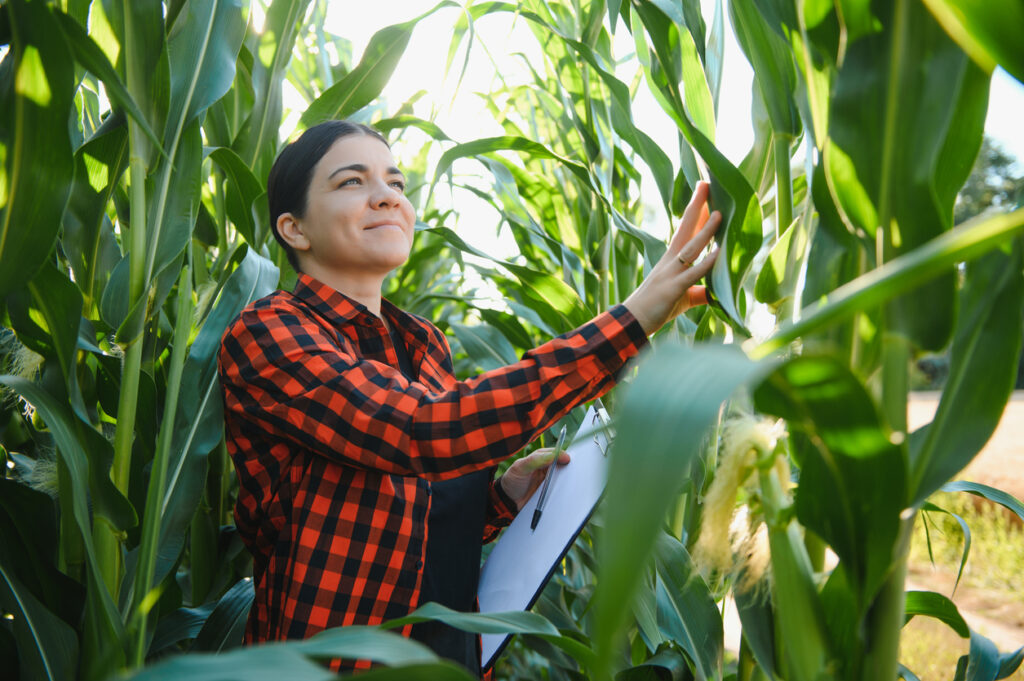Sustainability on the Farm

Ontario grain farming leadership in sustainable agriculture.
Ontario grain farmers are leading in sustainability innovation by continuously adopting advanced practices and technologies that result in positive environmental and productivity outcomes. Here are a few highlights of Ontario grain farmers’ sustainability progress.
Soil health
- Ontario farmers are leading nationally in planting cover crops at 27 per cent in 2020, doubling the number of Ontario farms planting cover crops from 20101.
- Cover crops provide a living cover, build soil organic matter, and improve water filtration.
Sustainable productivity
- Ontario grain farmers are optimizing land use. Cropland in Ontario has plateaued over the past 20 years, yet production volumes have substantially increased from 2003 to 2023.
- Soybean production increased by 135 per cent from 2003 to 2023, from 1.7 to four million metric tonnes2.
Biodiversity
- Ontario farmers are contributing to above-ground and below-ground biodiversity. In 2021, 97 per cent of farms in Ontario reported rotating their crops3.
- Rotating crops feeds and diversifies the soil microbial community, contributes to pest management, and reduces weed growth.
Nutrient Stewardship
- In 2021, 92 percent of Ontario farmers reported testing their soils for nutrient content4.
- Soil testing shows farmers the nutrient balance in soils and informs their continuous improvement in optimizing plant uptake of nutrients and minimizing nutrient losses to the environment.
Water Quality
- Ontario farmers are minimizing phosphorus and nitrogen loss to the Great Lakes. In 2022, 45 percent of Ontario farmers worked with a 4R-certified agri-retailer, an 18 percent increase from 20195.
- Working with 4R-certified agri-retailers ensures farmers use science-based approaches to nutrient management.
- Ontario grain production is primarily rain-fed, with only one per cent of farmland acres under irrigation6.
Climate action
- Ontario farmers are increasing their production of renewable energy on farms. As of 2021, 18 per cent of Ontario farms produce renewable energy, including wind, solar, and biogas.
- Between 2016 and 2021, total renewable energy production by Ontario farmers increased by 64 per cent7.
Why is sustainability important in farming?
Ontario grain farmers adopt practices, technologies, and system innovations to maintain a balance across the sustainability pillars — social, economic, and environmental. Grain Farmers of Ontario recognizes the importance of sustainability in grain farming and is an integral part of the ecosystem of organizations that enable farmers to achieve their sustainability goals. Building a sustainable grain farming operation and communicating progress is important because it:
- Contributes to maintaining strong and growing businesses and productivity advancement.
- Supports market access and expansion opportunities.
- Demonstrates to policymakers and decision-makers that farmers are taking a leadership role in agriculture stewardship.
- Builds public trust in the agriculture sector and farmers.
Insights on sustainable grain farming
1Statistics Canada (Census of Agriculture), 2011, 2021
2Statistics Canada, 2024
3Statistics Canada (Farm Management Survey), 2021
4Statistics Canada (Farm Management Survey), 2021
5Fertilizer Canada (Fertilizer Use Survey), 2022
6Statistics Canada (Census of Agriculture), 2021
7Statistics Canada (Census of Agriculture), 2016, 2021

